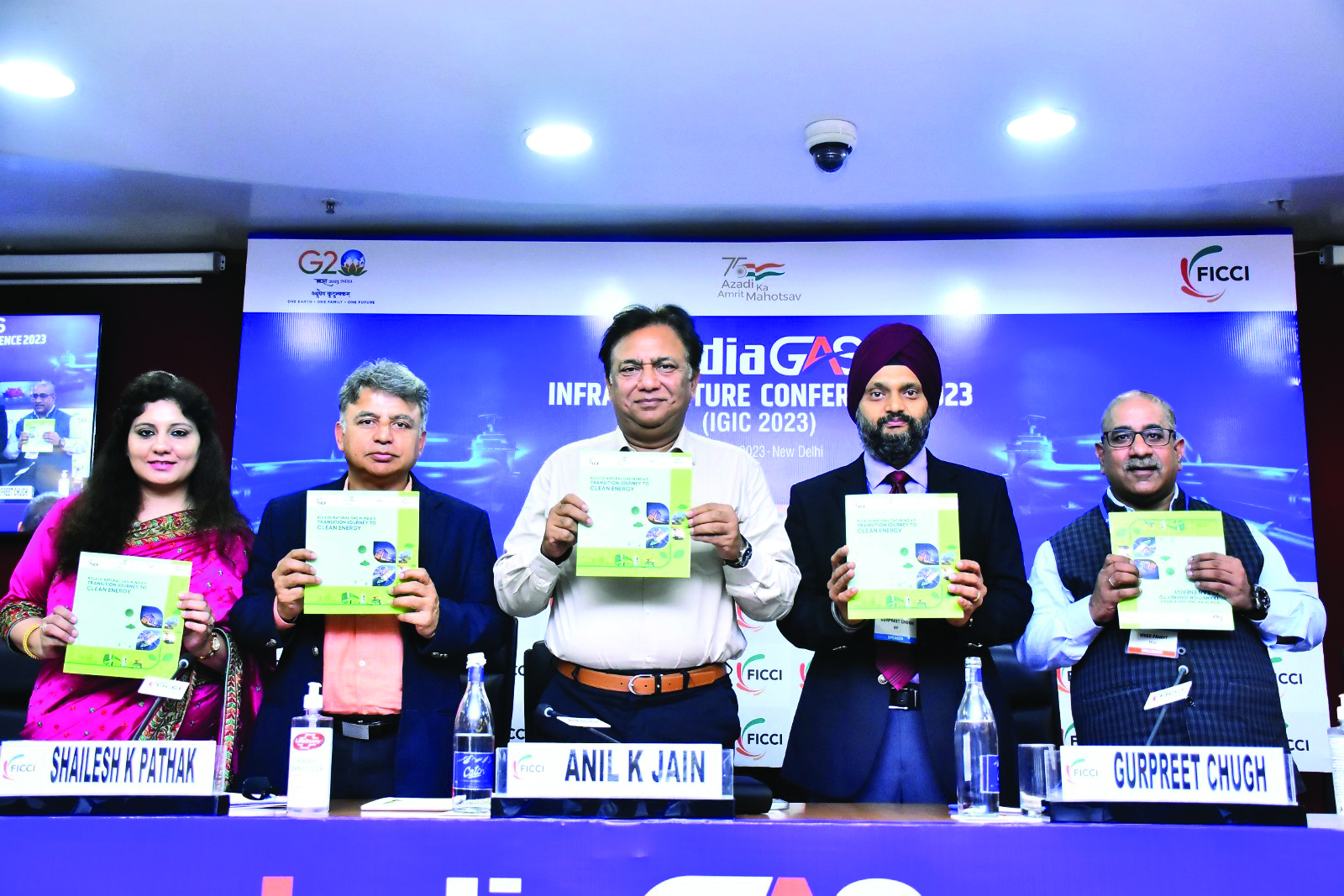Industry experts stress on dismantling dichotomy between domestic & imported gas

New Delhi: In a recent gathering at the FICCI’s India Gas Infrastructure Conference 2023, industry experts emphasised the urgent need to dismantle the persistent dichotomy between domestic and imported gas in order to achieve a more cohesive natural gas market. The event saw influential figures from the sector highlight the detrimental effects of this division and stress the potential for integration between liquefied natural gas (LNG) and the wider natural gas industry.
Anil K Jain, Chairperson of the Petroleum & Natural Gas Regulatory Board (PNGRB) , expressed optimism about the ongoing pipeline projects from Jammu to Srinagar and the expansion of City Gas Distribution (CGD) networks in the Northeast, hilly districts, and Jammu and Kashmir. Jain underlined the significant untapped capacity of LNG terminals, stating that 45 million tons of free gas capacity are available while only 25 million tons are currently being utilised. He further highlighted the importance of infrastructure readiness for the industrial and commercial segments, suggesting that a second wave of investments is likely.
Jain drew parallels with the oil sector reforms of the 1990s, indicating a similar transition in the gas sector, leading to the dismantling of the Administered Pricing Mechanism (APM). He stressed the need for India to prepare for an imported gas-based regime, considering the rising demand for gas and its relative affordability compared to imported oil. Jain also addressed the importance of unified tariffs, particularly in areas with difficult accessibility, as a means of opening up markets and facilitating easier access to financing.
Prashant Modi, MD and CEO of Great Eastern Energy Corporation Limited and Chairman of the FICCI Committee on Oil and Gas-Upstream, echoed the sentiment of transforming India into a gas-based economy. While commending the government’s efforts in promoting domestic exploration and production, Modi emphasized the need for additional ground-level work to enhance the ecosystem. He proposed implementing a Direct Benefit Transfer (DBT) system for gas subsidies and recommended establishing a Standard Operating Procedure (SOP) for every layer of the gas infrastructure ecosystem to ensure compliance with laws and enable government monitoring.
Gurpreet Chugh, Managing Director at ICF, highlighted India’s significant progress in the natural gas sector over the past two decades. He attributed the growth of India’s natural gas consumption to the evolving gas mix, including the substantial introduction of LNG, the expansion of the CGD network, and the emergence of technologies like Compressed Bio Gas (CBG). Chugh identified several emerging opportunities, such as using LNG in Heavy-Duty Vehicles (HDVs), promoting the growth of CBG to reduce air pollution, exploring biomass gasification, and producing green hydrogen for blending with existing gas networks.
Shailesh K Pathak, Secretary General of FICCI, acknowledged the success story of India’s natural gas market and the government’s role in laying down the infrastructure and regulatory structure. He emphasized that the private sector can now leverage the enabling environment to better serve customers.
The experts’ remarks at the conference reflect a collective call to bridge the divide between domestic and imported gas, unify tariffs, and ensure infrastructure readiness for the industrial and commercial segments. With an increasing demand for gas and the potential for a shift towards imported gas, India’s natural gas industry is poised for a transformative phase, presenting numerous opportunities for growth, innovation, and environmental sustainability.



